Carry Forward Revolutionary Culture, “Broaden Ideological and Political Courses”: CUEB Establishes the Revolutionary Culture Research and Education Center
On November 13th, CUEB held the inaugural meeting of the Revolutionary Culture Research and Education Center under the theme of “carrying forward the revolutionary culture and broadening the ‘ideological and political course’”, to implement the spirit of the just concluded Sixth Plenary Session of the 19th CPC.
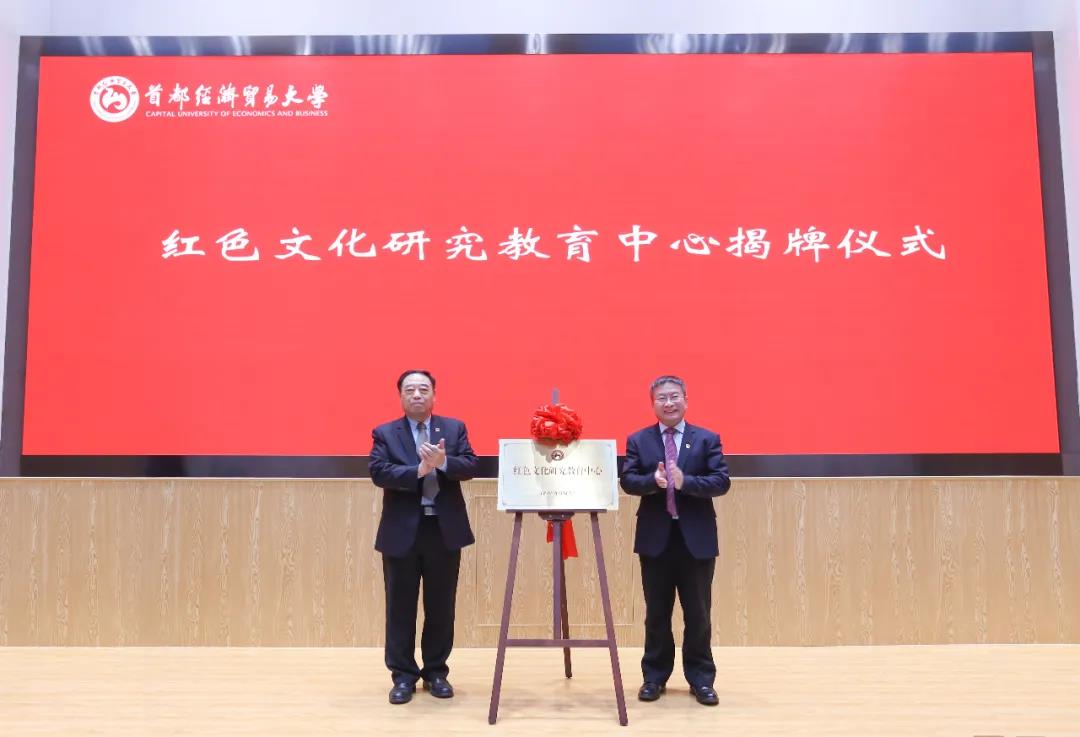
Shan Wei and Han Xianzhou inaugurated the Revolutionary Culture Research and Education Center.
Shan Wei, Party Secretary of the National Museum of China, Chen Mingjie, Party Secretary and Director of the Beijing Municipal Cultural Heritage Bureau, Kou Hongjiang, Director of Publicity and Education Branch Beijing Municipal Education Committee, and Han Xianzhou, Party Secretary of CUEB, attended the meeting. Xu Fang, Deputy Secretary of the Party Committee, presided over the meeting.
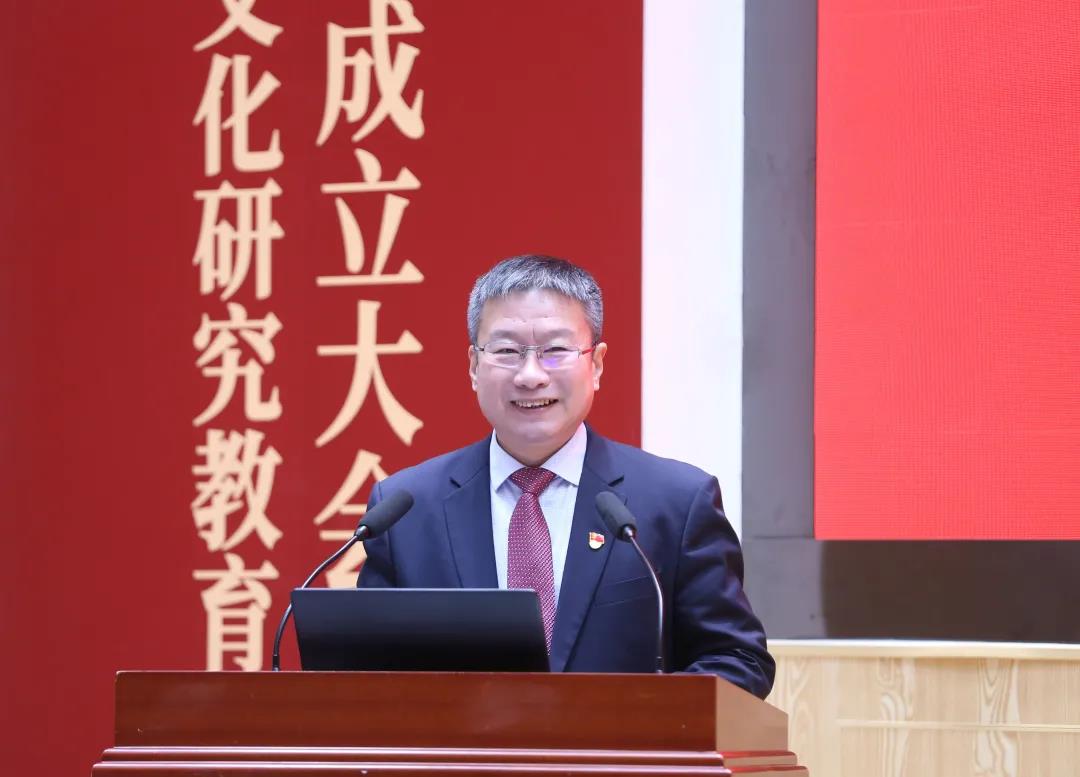
Han Xianzhou expressed warm welcome and great gratitude to all the leaders and comrades for the visit to the inaugural meeting of the Revolutionary Culture Research and Education Center in CUEB. He said that the establishment of this center in CUEB is the measure to implement “broaden ideological and political courses”. He introduced three favorable conditions for the establishment of the center. Firstly, President Xi Jinping’s statement on “broadening ideological and political courses”, which is the fundamental principle of the center. Secondly, Opinions on Making Full Use of Revolutionary Cultural Resources to Strengthen the Ideological and Political Work of Universities in the New Era, jointly issued by the Ministry of Education of the People’s Republic of China and the National Cultural Heritage Administration, sets out the requirements for revolutionary education in schools. Thirdly, the increased cooperation with the National Museum of China and other off-campus organizations provides more pathways for revolutionary education. Han talked about the three focuses and three efforts of strengthening research and education in revolutionary cultures. That is, we should focus on building an education system that ensures the well-rounded development of students in terms of moral grounding, intellectual and physical ability, aesthetic sensibility, and work skills, establishing a higher-level talents cultivating system and the “Three Whole Education” (That is, all educational workers strive to foster students in all processes and in all respects.). We should make efforts to promote the “Beijing Practice” featuring socialism with Chinese characteristics into class, and bring Beijing revolutionary resources to class as well. We should also explore to the fullest extent the revolutionary resources contained in disciplines and courses, and make ideological and political education closer to students and more focused. He emphasized that the center is an open platform. We should integrate related resources in real life, such as the revolutionary resources in Beijing and China etc., into the broader landscape of ideological and political courses construction, for example, the daily ideological and political work and courses, through links from “bringing in” to “going global” in order to improve the mechanism of school-family-society cooperation in the process of educating students.
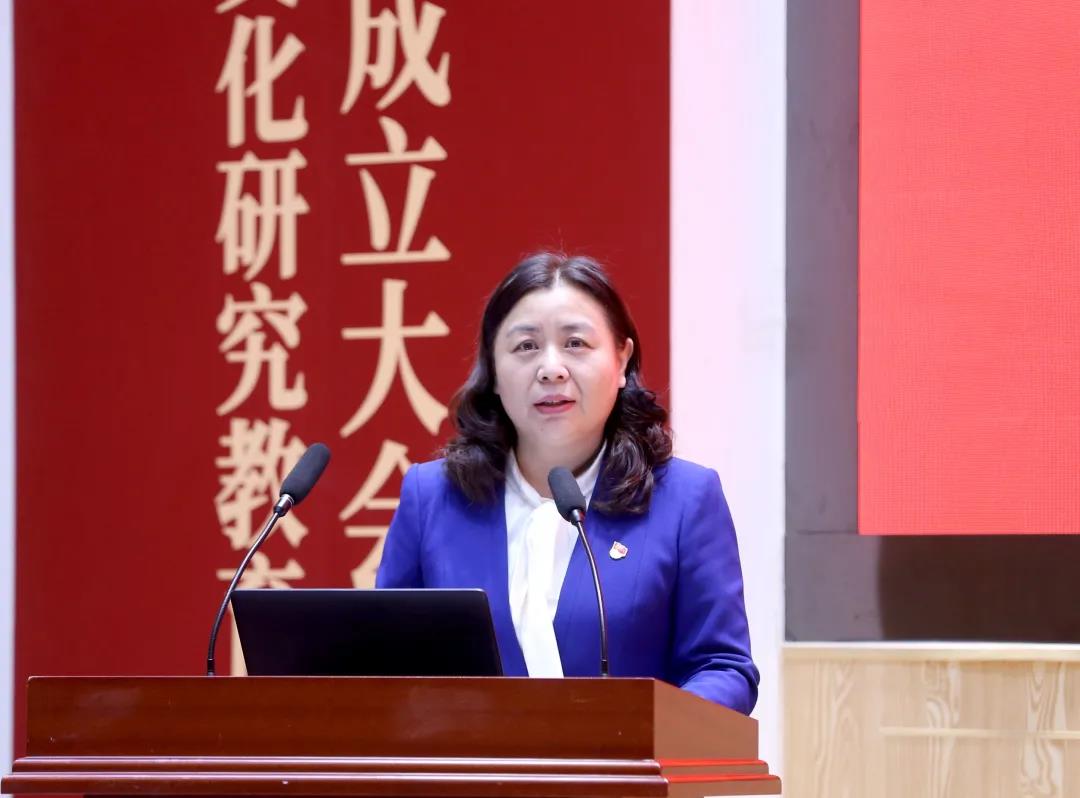
Xu Fang introduced the development of revolutionary culture research and education and the preparation of the Revolutionary Culture Research and Education Center from the background of the times, work, and reality. She said that it boasts a solid foundation for CUEB to establish the Center, with distinctive revolutionary education, constantly consolidated revolutionary culture research, the integration of revolutionary resources into ideological and political education, and the cooperation with the off-campus units. In the future, the Center will work in five directions, including revolutionary culture, the combination of revolutionary culture, economy and tourism, the integration of revolutionary culture into ideological and political theory courses and daily ideological and political education. For the next step, CUEB will carry out in-depth exchanges and cooperation with the National Museum of China and other units, and strive to build the center into a new benchmark for the close integration of revolutionary culture, revolutionary cultural relics, and ideological and political construction in university.
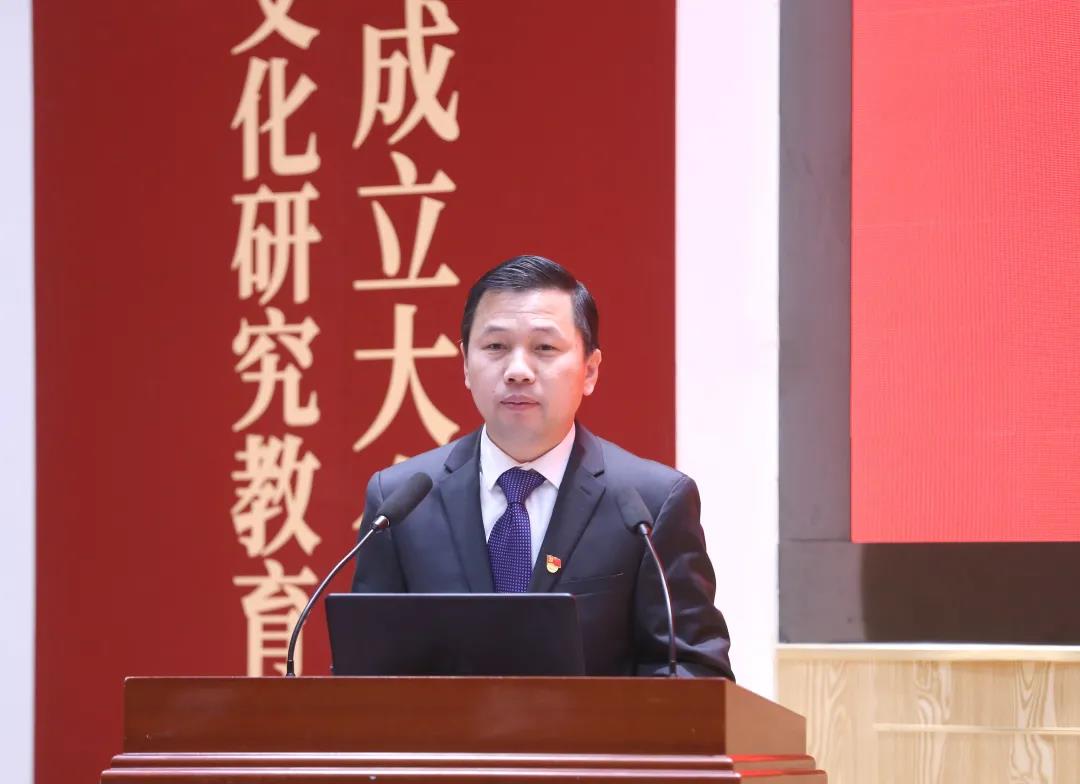
Kou Hongjiang delivered a speech for the establishment of this center. He said that it was high time to establish the Center, as it was a timely move to learn and implement the spirit of the Sixth Plenary Session of the 19th CPC Central Committee, a proper move to deepen the study and education of the Party’s history, and a necessary step toward strengthening ideological and political education for students by making the most of the revolutionary resources in the capital. He put forward three expectations for the construction and development of the Center that it would be the inheritor, disseminator, and practitioner of revolutionary culture, strengthening the construction to cultivate love for the Party and growing patriotism among teachers and students of CUEB.
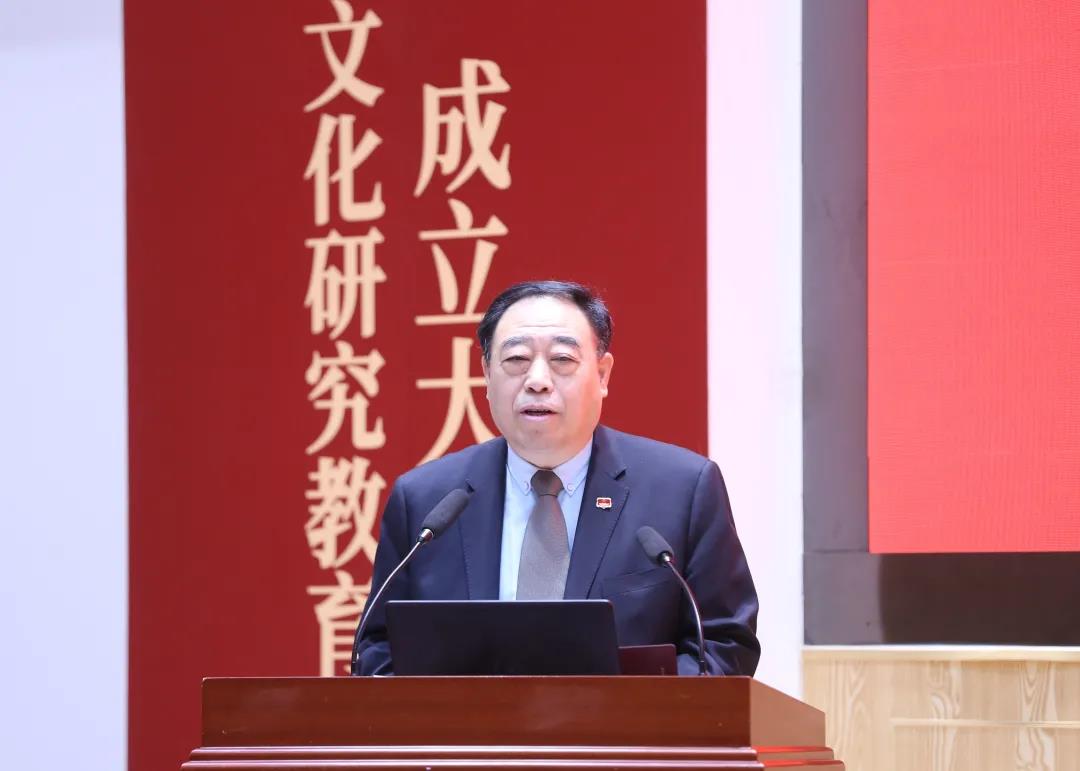
Shan Wei gave a report titled “Taking Ideological and Political Education as a Lead to Maximize the Multiple Values of Revolutionary Resources and Culture”. He spoke about the necessary and timely establishment of the Center to implement the spirit of the Sixth Plenary Session of the 19th CPC Central Committee, to strengthen revolutionary education based on both domestic and international imperatives, and to meet relevant work requirements of the Ministry of Education and the National Cultural Heritage Administration. He put forward three suggestions for the construction of the Center. First, we should assume the responsibility of the times, clarifying the spirit of the Sixth Plenary Session of the 19th CPC Central Committee and the historical, theoretical, and practical logic in the major achievements and historical experience of the Party over the past century. Second, we need to make clear the goal of the struggle, combining the advantageous resources of our university with the building of a national cultural center in the capital so as to form the CUEB characteristics in revolutionary culture research and education, and then continuously improve the influence of the center to serve the whole country. Thirdly, we must promote specific work processes, further studying and combing General Secretary Xi Jinping’s important discourses on revolutionary culture, strengthening the organization and team building, and producing more results on high-level research and education.
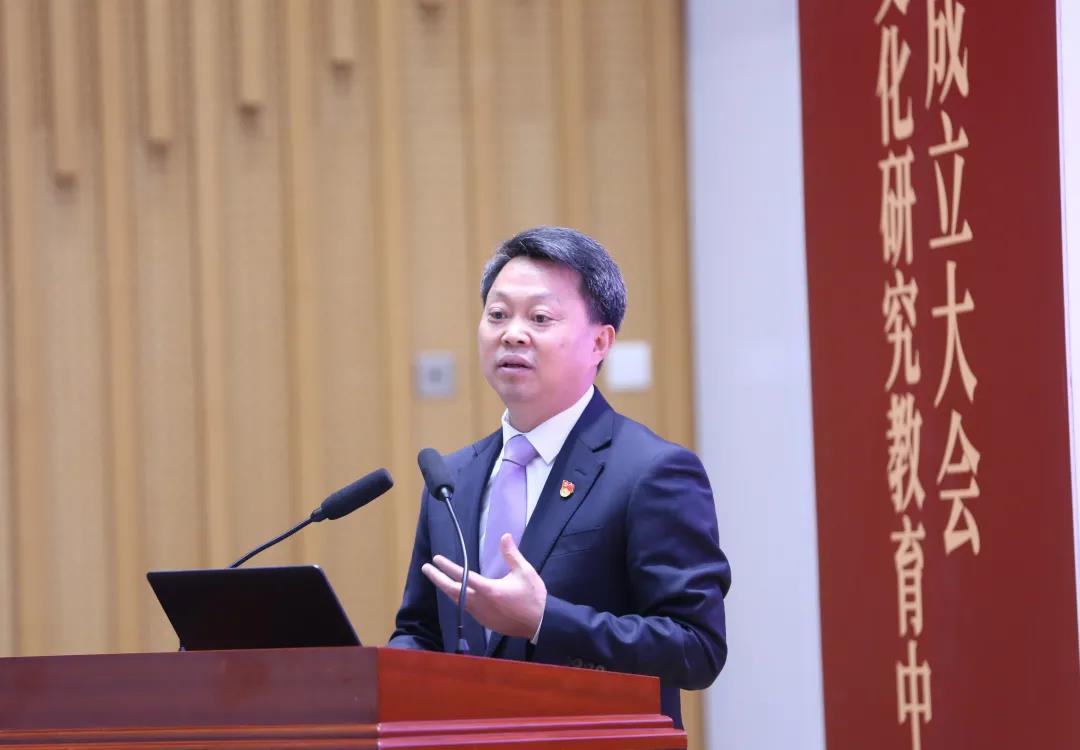
Chen Mingjie gave a speech with the theme of “‘1+N’ Practical Exploration of the Construction of the revolutionary memorial site in the Fragrant Hills in Beijing”. He sorted out the sites that General Secretary Xi Jinping had visited in the revolutionary memorial and pointed out that Xi’s actions and words have indicated the way forward for us to remember the revolutionary history of Beijing, carry forward the great revolutionary spirit during our long march into the new era, and provided the fundamental principles for strengthening the protection and utilization of revolutionary cultural relics in the new era. He mentioned that Beijing has seized the great opportunity of the founding of the Party over the past century to protect and renovate a total of 31 sites of the PKU Red Building and early revolutionary activities of the CPC in Beijing, exploring deeply the historical connotations and revolutionary themes of the revolutionary resources so as to make the sites into vividly taught material for the whole society to learn from and become educated about the Party’s history, and create a boom in visitor numbers, which has been highly evaluated and appreciated by all sectors of the society. He summarized the main practices and experiences in constructing revolutionary memorial sites in the Fragrant Hills in terms of unifications: the unification between focus and features, the whole and the parts, the construction and management, the tangible and intangible, and standards and effects, so that we endeavor to inherit and develop the revolutionary culture.
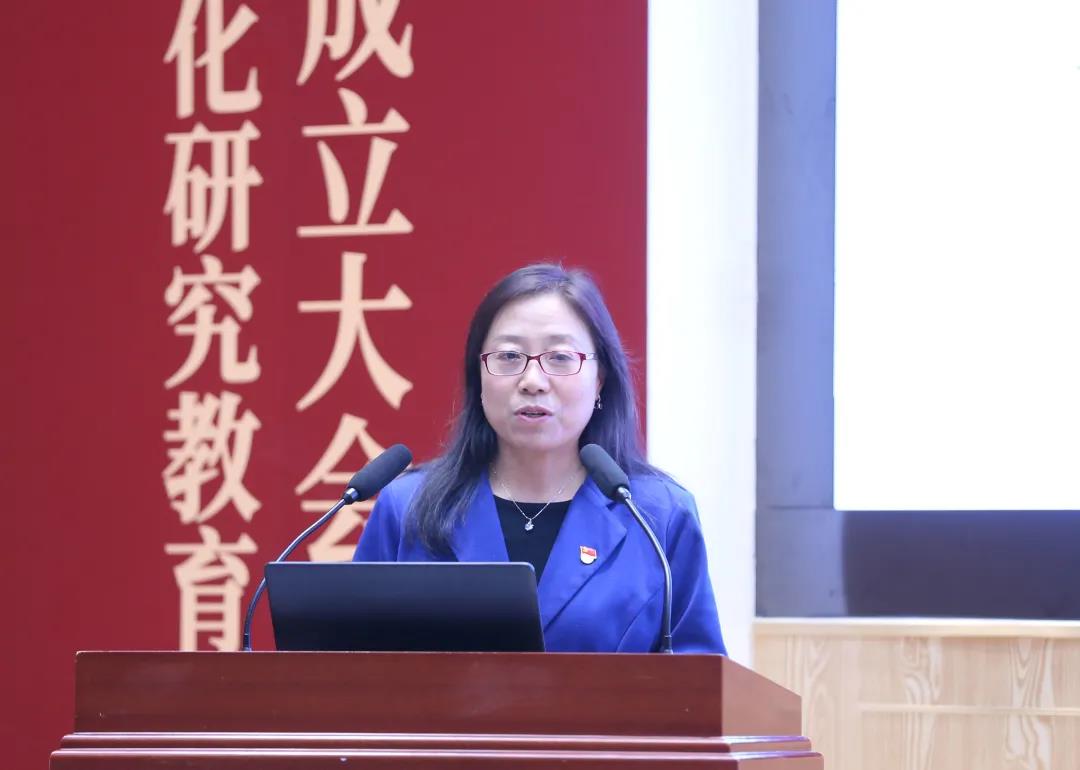
Professor Li Jing from the School of Economics gave a presentation on the topic of “The Rise of Revolutionary Currency and its Relevance”. By elaborating against the backdrop of the issuance of border currency in the Shaanxi-Ganjiang-Ningxia Border Region Bank in 1941, sorting out the overall thinking of the economic pioneering of the border area banks, summarizing the problems and specific practices encountered by the border area banks, she proposed that we should adhere to the unity of theory and practice, and draw wisdom from experience of history so as to better cope with the current challenges in economy at home and abroad. We need to sustain the revolutionary legacy, promote the establishment of Xi Jinping Thought on Socialism with Chinese Characteristics for a New Era based on the tenets of Marxism to China’s specific realities and its fine traditional culture, as well as to conduct revolutionary culture education in the classroom. He also made suggestions for the future development of the Center in five areas: research methods, research objects, network thinking, open thinking, and the form of results.
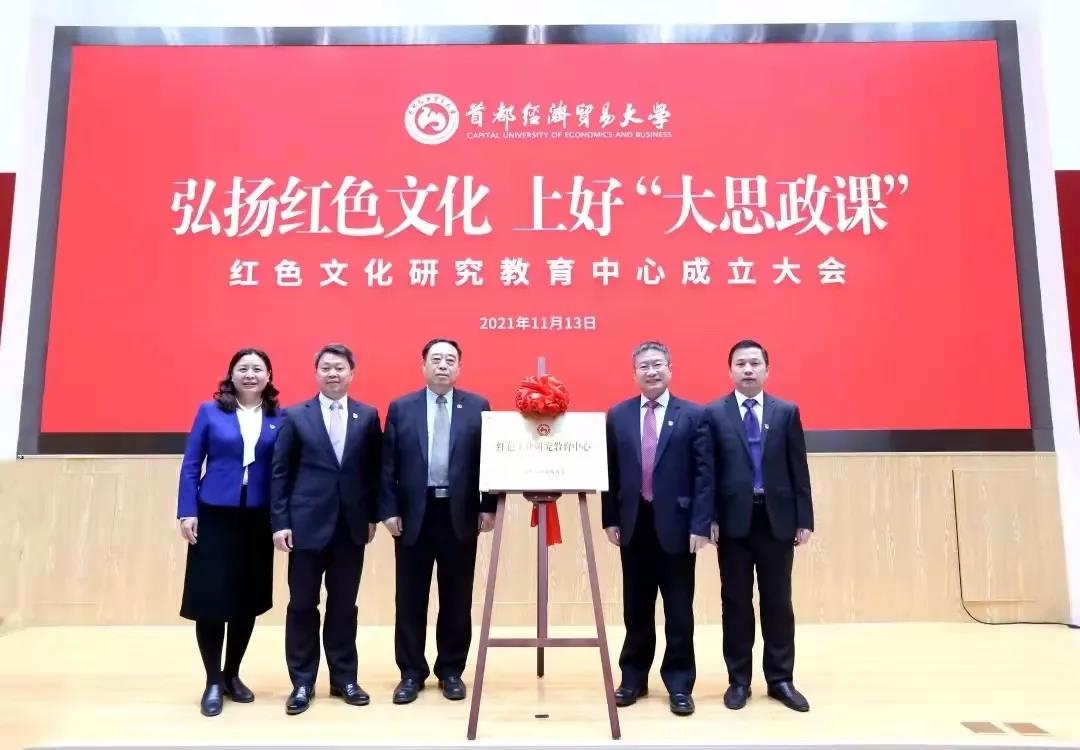
The founding ceremony was attended by the heads of relevant functional departments and schools, as well as by representatives of teachers and students.
